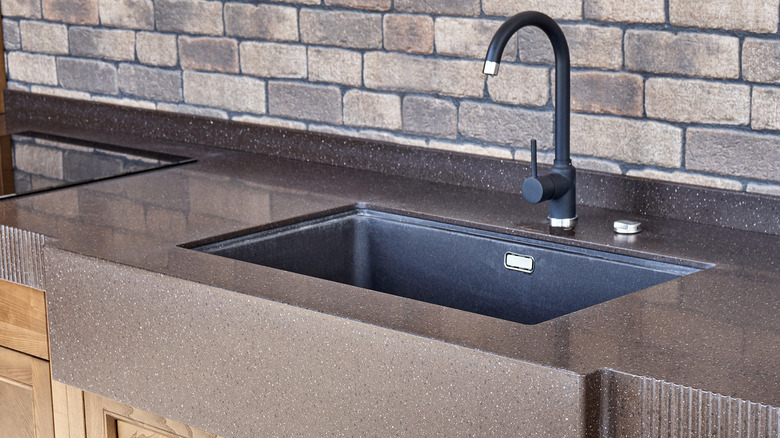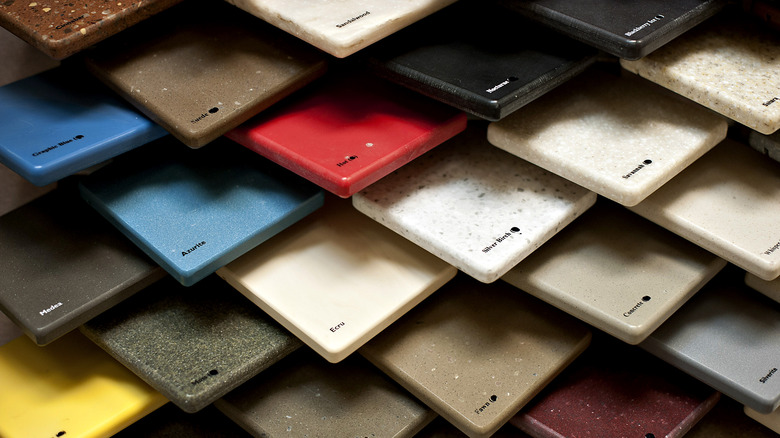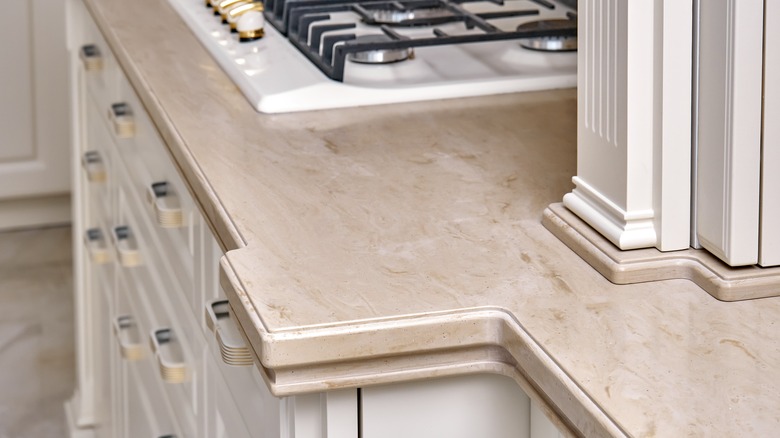The Advantage Of Installing A Corian Kitchen Countertop Instead Of Granite
Corian is a type of solid surface material made from acrylic resins and natural minerals. It works well as a countertop material because it is as hard as stone but can be cut and shaped much like wood, allowing for the creation of nearly invisible joints. Corian is a brand name made by the DuPont Corporation and was first released in 1967, but other companies now produce similar products. They all offer similar key benefits, including numerous style options, competitive pricing, and a durable surface.
Solid surface countertops like this, including products from other brands like Wilsonart and Avonite, may be an excellent choice for anyone looking for a stunning countertop that's non-porous and stain-resistant, and relatively affordable compared to natural stone. It can look like stone, wood, or numerous other materials in over 100 colors. This versatility makes it a solid choice for many kitchens. Though it's not as durable as granite (it can be damaged by heat or scratches), it's a solid upgrade for many kitchens for its style and luxurious look. While granite offers a highly durable surface and is a natural stone, it's typically the more expensive choice. Granite, though, requires sealing and polishing, in some cases, which may be more work than Corian necessitates. So, is Corian best for your kitchen upgrade?
Corian is a beautiful, versatile solution
The key benefit of Corian is its versatility. With granite, you'll have to find the perfect slab of stone with the veining and coloration you enjoy. Every granite slab is a bit different, thanks to its natural development. However, Corian starts off opaque and can have numerous colors and textures added to it, allowing manufacturers to use it for just about any style of kitchen, from a shabby chic space with a fun, light color scheme to a dominating black, sleek, modern kitchen. Manufacturers can also add various materials to create a speckled, even textured look, much like what granite offers.
Also contributing to the versatility of Corian is the lack of seams. Having granite placed in an L-shaped kitchen means you'll have at least a few seams where the two slabs of stone come together. Since the slabs differ so much, it's much easier to see those seams with granite than it is with Corian. Also notable, Corian can blend in better within a space. If you want your kitchen's striking cabinetry and other design features to stand out instead of your countertops, choose a Corian product that's simplistic, soft, and subtle.
Installation, durability, and maintenance considerations
Granite and Corian require professional installation in most situations, with Corian being less difficult since it is easier to cut. Once cut to size, installers then use a solvent that breaks down the edges of the material just enough to smooth them together to create a solid look, meaning fewer edge lines at connection points. Granite requires careful cutting, and when not cut exactly properly, it may be necessary to start over with another slab.
Both granite and Corian provide homeowners with a durable kitchen countertop with minimal maintenance, but Corian's biggest flaw is that it can be scratched rather easily. However, with a bit of buffing and patience, you can remove most of those scratches over time. These countertops are not at risk for cracking, though, like granite. Granite is durable and hard to damage with normal use, but some products need to be sealed every few years to reduce the risk of staining the natural stone. Corian countertops (including other brands of solid surface countertops) typically have a lifespan of 10 to 30 years, some with a warranty in place for that first decade. Also important to note that while granite is likely to boost home values at least somewhat, Corian doesn't carry the same benefit. However, they are still a nice upgrade over other materials, such as laminate.


